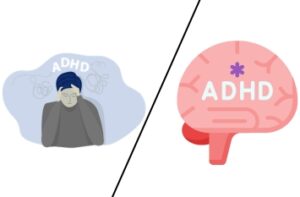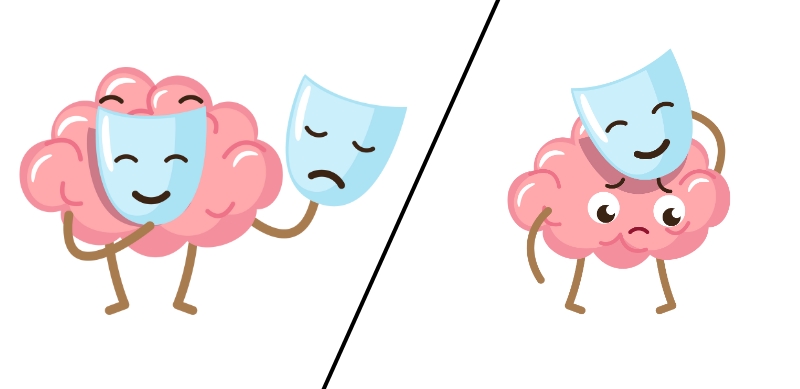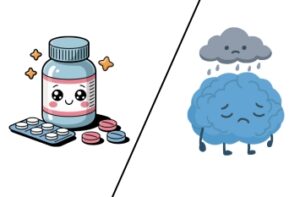
ADHD in Adults: Signs, Symptoms, and Treatment Options in Frisco, TX
ADHD in Adults: Signs, Symptoms, and Treatment Options in Frisco, TX Attention-Deficit/Hyperactivity Disorder, ADHD, is often thought of as a childhood condition, but millions of

We all experience emotional highs and lows, but for individuals living with bipolar disorder, these shifts are far more intense, disruptive, and difficult to manage. This mental health condition extends far beyond ordinary mood swings. It can significantly affect relationships, careers, daily functioning, and overall quality of life.
At Perfect Balance Psychiatric Services, we are dedicated to helping individuals and families better understand bipolar disorder, while guiding them toward the right treatment and resources. With proper diagnosis, evidence-based care, and ongoing support, long-term stability is absolutely within reach.
Bipolar disorder is a mood disorder that causes dramatic fluctuations in a person’s emotional state, energy levels, and ability to function. These shifts are categorized into two primary mood episodes:
These episodes are not triggered by normal life stressors, and they often require medical attention and treatment. Without intervention, bipolar disorder can lead to serious complications, including self-harm or suicidal ideation.
Understanding the three main types of bipolar disorder is crucial for accurate diagnosis and effective treatment:
Recognizing the warning signs of bipolar disorder—whether in yourself or a loved one is a critical first step toward seeking help.
These symptoms can vary widely in intensity and duration. Some people experience “mixed episodes” when symptoms of mania and depression occur at the same time, which can be particularly confusing and distressing.
The exact cause of bipolar disorder is not fully understood, but research suggests it develops from a complex interplay of genetic, biological, and environmental factors:
Bipolar disorder often runs in families. If you have a parent or sibling with the condition, your risk of developing it increases. However, having a genetic predisposition does not guarantee you will develop the disorder.
Neurotransmitter imbalances, particularly involving serotonin, dopamine, and norepinephrine, are believed to play a role in mood regulation and may contribute to bipolar episodes.
Stressful or traumatic life events, such as abuse, the loss of a loved one, or major life changes, can trigger the onset or worsening of symptoms. Substance use, poor sleep, and inconsistent routines can also influence mood episodes.
Understanding the root causes helps reduce stigma and highlights the importance of a biopsychosocial approach to treatment.
At Perfect Balance Psychiatric Services, we provide a personalized and integrative approach to treating bipolar disorder. We understand that no two individuals experience bipolar disorder in the same way, which is why our care plans are carefully tailored to each person’s unique needs.
Mood stabilizers, antipsychotics, and antidepressants (when appropriate) can be used to help manage mood episodes and prevent relapses. Our psychiatric providers carefully monitor and adjust medications to maximize effectiveness and minimize side effects.
Talk therapy is a vital component of treatment. We offer:
We provide patients and their families with knowledge about the disorder, treatment options, warning signs of relapse, and self-care strategies. Understanding the condition promotes early intervention and better long-term outcomes.
For those with treatment-resistant depression, Transcranial Magnetic Stimulation (TMS) is a non-invasive therapy that uses magnetic pulses to stimulate brain areas involved in mood regulation. It can be an effective option for patients who haven’t responded to traditional medications.
We offer secure virtual appointments for medication management and therapy, making mental health care more accessible and consistent, especially during times of crisis or for those with mobility or scheduling challenges.
Living with bipolar disorder can feel like an emotional rollercoaster, but it doesn’t have to define you. With the right diagnosis, evidence-based treatment, and a strong support system, long-term stability and a fulfilling life are absolutely possible.
At Perfect Balance Psychiatric Services, we’re here to walk with you through every step of your journey offering compassion, expert care, and tools for lasting change. Whether you’re seeking help for yourself or a loved one, know that support is available and hope is real.
If you or someone you know is struggling with mood swings or has been diagnosed with bipolar disorder, reach out to Perfect Balance Psychiatry today. We’re here to help you find clarity, control, and, most importantly, peace of mind.

ADHD in Adults: Signs, Symptoms, and Treatment Options in Frisco, TX Attention-Deficit/Hyperactivity Disorder, ADHD, is often thought of as a childhood condition, but millions of

When Medication Isn’t Enough: Exploring Advanced Depression Treatments in Frisco, TX Depression is a complex medical condition that affects mood, energy, motivation, sleep, and overall

Tele-Psychiatry in Frisco, TX: Convenient, Confidential Mental Health Care From Anywhere Mental health care should be accessible, flexible, and fit into your life—not add more
